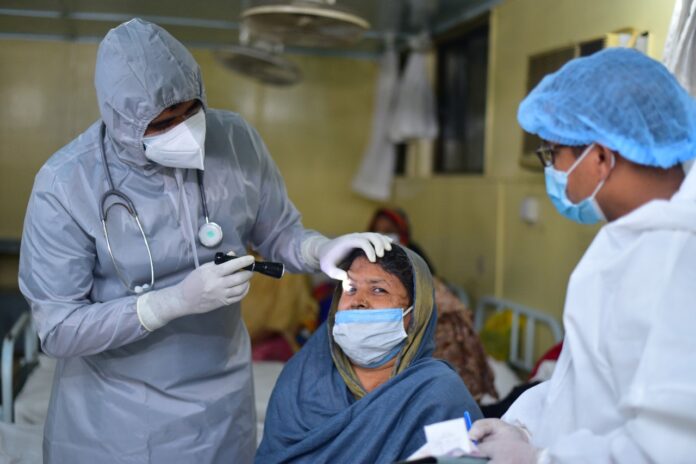DHAKA: Al Amin grew up wishing he could run but even walking was difficult for the 28-year-old until February, when doctors from a floating hospital corrected his clubfoot — a treatment he otherwise could not have received in the rural region of Bangladesh where he lives.
Amin is one of more than 725,000 people who have been treated on the vessel that has been traversing the waterways of the South Asian nation for over two decades to provide accessible healthcare to the country’s rural population.
The hospital is called Jibon Tari, or Boat of Life — a name taken from a poem by the famed Bengali poet and Nobel laureate Rabindranath Tagore.
The surgery Amin underwent for both legs when the hospital docked in the southern Jhalkati district, cost him around $220. He estimated that it was at least five times less than what he would have had to pay for the procedure at any private clinic in the country.
“I have been suffering from clubfoot since birth. I grew up with this physical limitation and couldn’t find any treatment until I visited the Jibon Tari hospital,” Amin said. “Now I am getting better every day. I hope I will be able to run like a healthy man in the next couple of months.”
Jibon Tari was launched in Bangladesh in 1999 by the Impact Foundation, an international charity which specializes in helping people with disabilities and the poor.
The hospital brings surgical treatment to areas accessible only by river, where there are few medical facilities.
Dr. Hasib Mahmud, chief executive of the Impact Foundation Bangladesh, told Arab News: “Unfortunately, these people are far from the reach of formal healthcare facilities and due to poverty, they can’t afford the healthcare services at private hospitals or clinics.”
It costs $36,000 a month to run the hospital, most of which is funded from international donations.
The foundation has already started to prepare to launch a new ship when Jibon Tari retires in the next few years.
“We need to continue and sustain the boat hospital services for many more years as the demand is still there,” Mahmud said. “The existing hospital will need a replacement in the next six to eight years, so IFB will need huge funding for building a new boat hospital, which will run for at least another 30 years.”
Another patient whose life became better after the hospital docked in Jhalakti district in February was seven-year-old Sumaiya Akhter, who had suffered for years from tonsillitis, which made eating and drinking painful.
Her father, Sohag Khalifa, could not afford the procedure of removing the tonsils on his wages as a van driver.
“Fearing the high cost of the treatment, I couldn’t visit other hospitals before that. At Jibon Tari hospital I spent a very nominal amount,” he said. “Now she is completely okay.”
The three-deck hospital usually docks at a location for at least 10 months, before moving on to other parts of the riverine country. It is equipped with modern medical facilities and run by about three dozen staff, including four doctors.
One of them is Dr. Mobaswer Shajib, who said that at times it was difficult living on the water away from his family.
“But I forget the pain immediately while thinking about the good deeds I am doing here,” he added. “Other big hospitals wouldn’t give me such a platform.”

